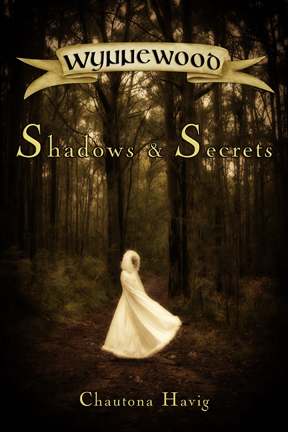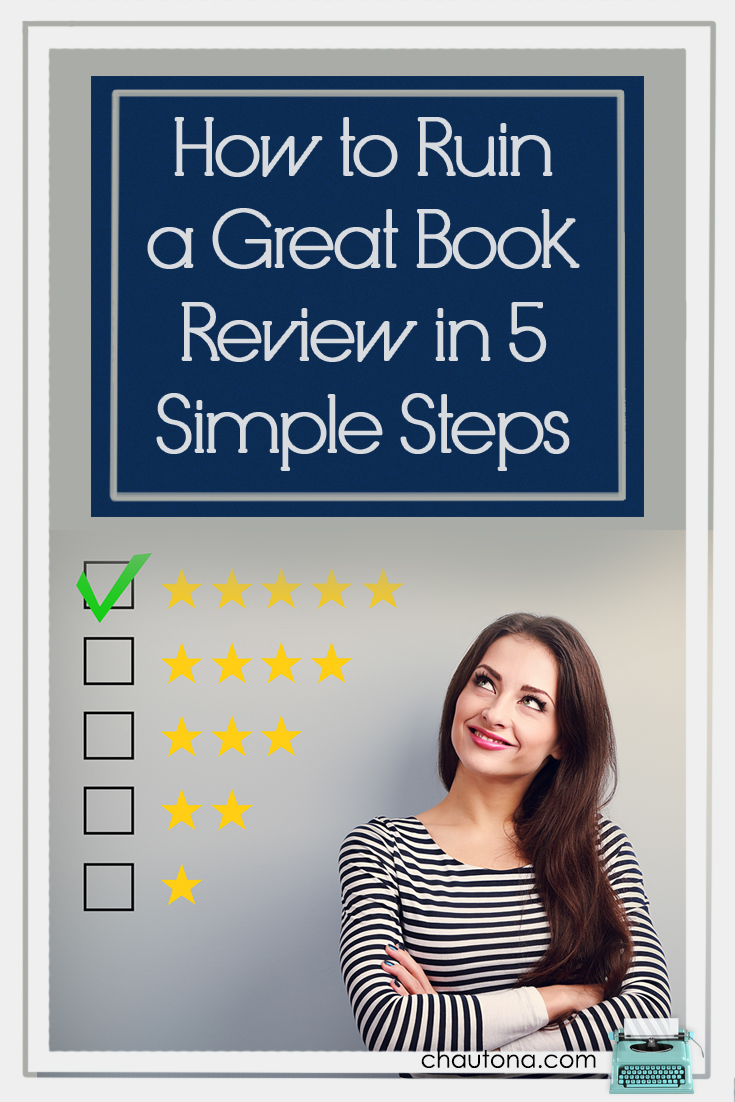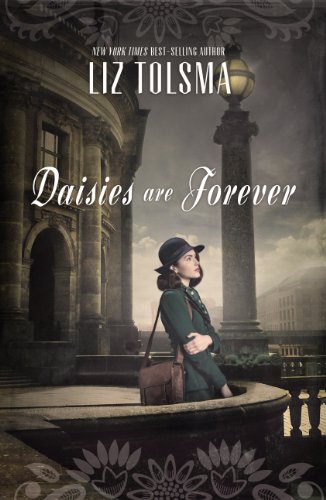The review burned holes into my eyes. On my youth adventure fantasy novel, Shadows & Secrets the insanely short, 1-star review mortified me. I can’t even bring myself to go look it up again, so I’m going on memory with my best recollection of the one-line review.
“It was okay, but there was too much juicy sex for me.”
THUD.
 I’ll admit. I panicked. Responded to it, suggesting she was referring to some other book. Posted a wailing rant on my Facebook page. All I could imagine is some parent, after their child had read that first book that Grandma sent to the Kindle, going to buy the second one, seeing that review of the first, and thinking, “What did my child just read!!!”
I’ll admit. I panicked. Responded to it, suggesting she was referring to some other book. Posted a wailing rant on my Facebook page. All I could imagine is some parent, after their child had read that first book that Grandma sent to the Kindle, going to buy the second one, seeing that review of the first, and thinking, “What did my child just read!!!”
Yeah. Like that would happen. Once the panic subsided, I took a deep breath, went back to Facebook, deleted my panicked post, and apologized.
And, when Amazon decided to LEAVE that unjust and frankly, abusive (even if it was accidental) review, I just turned away and left it alone. Anyone who reads any other review is going to get the idea that this is not porn for children.
Blech.
I wish that was the only time I’ve dealt with that or seen others bombarded with ugliness. It’s not. There was the woman who blasted me for “stealing” another author’s book cover. She clearly didn’t understand how stock photos worked. Actually, I think that happened before my “juicy sex” book. And, I tried to educate her. Dumb mistake.
Note to authors: Don’t engage. In fact, don’t respond unless it’s to thank someone for pointing out a real problem you can do something about. It never ends well for you.
But this is for people reading and leaving reviews. So… here’s the thing. A lot of the complaints I see on various reviews (not necessarily even mine) are things that do nothing to help the author. They don’t help the next reader. So, without further ado:

Note: links may be affiliates which means I get a small commission with a purchase, but no worries! It doesn’t cost you anything extra.
How to Ruin a Great Book Review in 5 Simple Steps
Blame the author for delivery problems with your Kindle.
You bought a kindle book—the next in your favorite series or a new author you’re convinced is going to become your favorite. Excited, you open the book. And the first page of chapter one is gone. Oh, well. You read from two and figure out what you missed—or most of it. And it’s good. You love it. Until you hit chapter two and realize… it’s not there. You go to three. It’s gone. Four.
Drat.
Frustrated, you zip off to Amazon and leave a one-star review of how horrible the book is because it’s missing the first page of every chapter (true story, btw).
Um… it won’t help you.
It won’t help other readers. One look at the other reviews before blasting the book might give you a hint that this isn’t a common problem.
What should you do when your book won’t download properly, pages are missing, or there is some other delivery problem? Well, talking to Amazon, Barnes & Noble, or whoever your dealer—um, I mean supplier—is will work. They have the ability to fix it.
Sometimes readers let me know.
And while I can check to see if it’s a problem on my end, 99.9% of the time, it’s not. But leaving a poor review on delivery problems for your purchase is equivalent to purchasing a hardback of your favorite author’s book. Then, when it arrives, you see that the packaging is open, and the first page of every chapter has been ripped out—obviously not a problem with the book itself. The problem is with the shipping company.
You don’t (or most people don’t) give that hardbound book a 1-star review because the post office had a weird shredding issue en route to your house. It’s not that “book’s” (or the author’s) fault. Please don’t do it to an eBook, either. Talk to the “delivery company” (Amazon/BN/etc.) and ask them to fix it.
Review the content instead.
That’s the only thing that’ll help me or some other reader decide if we want to read it. Because we won’t likely have the same glitch you did.
Review the book you wanted and expected rather than what the author wrote.
This is a great way to ruin a book review.
 Okay, this is a “sometimes.” If the book is listed as “Christian fiction,” don’t leave bad reviews because it talks about God all the time. And, if it’s erotica, don’t complain about all the smut in the book! When you didn’t bother to read the synopsis, don’t be ticked off that the book, “Off the Ticker” is about a stockbroker in 1929 instead of a heart surgeon like you thought.
Okay, this is a “sometimes.” If the book is listed as “Christian fiction,” don’t leave bad reviews because it talks about God all the time. And, if it’s erotica, don’t complain about all the smut in the book! When you didn’t bother to read the synopsis, don’t be ticked off that the book, “Off the Ticker” is about a stockbroker in 1929 instead of a heart surgeon like you thought.
I remember clearly offering my second Not-So-Fairy-Tales book, Everard, to a group of advance readers. One woman, a friend, came back and asked what she should do about it. She was upset, almost angry, that the book was not a continuation of Princess Paisley. She didn’t like it and wanted to know how she should review it.
I told her this (or something super close).
“Write an honest review, of course. Or don’t. If you can say you didn’t like the book because it wasn’t interesting, it was badly written, or something in the story itself failed badly, then say so. But if you didn’t like it only because you wanted what you wanted instead of what I wrote, then please don’t review. That’s not going to help anyone decide if they should buy it or not.”
And it wouldn’t have.
 So, if the Nazis killed 75% of your family in WWII Germany, perhaps Liz Tolsma’s Daisies Are Forever isn’t the book for you (for the rest of you, it’s 1.99 as of the writing of this post!). It wouldn’t be fair to read that book and protest that she showed German citizens in a sympathetic light. You cannot be objective. Don’t buy it. Don’t review it.
So, if the Nazis killed 75% of your family in WWII Germany, perhaps Liz Tolsma’s Daisies Are Forever isn’t the book for you (for the rest of you, it’s 1.99 as of the writing of this post!). It wouldn’t be fair to read that book and protest that she showed German citizens in a sympathetic light. You cannot be objective. Don’t buy it. Don’t review it.
Actually, a problem I have with that book is why I haven’t reviewed it yet. I decided to finish the first book in the series first (read ‘em out of order—didn’t know any better). I want to see if it’s her writing style, a missed opportunity, or if maybe I didn’t “get” something that I need to reread. So, my review waits until I can discover the answer.
Still, sometimes the book is billed as a clean, Christian book… and then it sears your eyes with a smutty scene ripped from the pages of erotica. You see, I don’t care if the couple is married. I wouldn’t walk into a married friend’s bedroom and watch the goings-on. And I don’t want it on my book page, either.
When I buy Christian fiction, I assume certain things. I won’t see “on-screen” sex and I won’t have my eyes polluted with language I don’t care to hear. Faith will be more than noting that the character went to church once (otherwise, it’s just a clean read). So, yes. I do have some expectations that I don’t think are unreasonable. But those aren’t just my preconceived notions. These are what most Christian fiction readers expect. And that’s the difference.
Nitpick every point of punctuation and grammar.
There’s nothing like reading a book review that says, “I found typos” to make any author’s heart sink.
Look, People have called me a “Grammar Nazi.” Fitzwilliam Darcy, in Pride and Prejudice, said, “I was given excellent principles but left to follow them in pride and conceit.” That’s kind of how I feel about my grammar education. I was taught excellent grammar skills but wielded them with intolerance and arrogance.
I remember one book by a major Christian publisher about ten years ago. Eleven errors on a two-page spread… and only two of those could have been considered a stylistic choice. I’d read books with “red” instead of “read” or “to instead of too” and thought, “Don’t they know the difference?”
And let’s face it. When it seems like every page of a book has half a dozen errors screaming at you, reading enjoyment explodes in a ball of fire that regrows like a Phoenix called annoyance. It’s just HARD to read a book where the superfluity of errors reach off the page and slap you upside the head.
But most books don’t have THAT many errors. In fact, if a book is 99.9% error-free, and the book has 100,000 words (most of mine have around 90,000) that’s 100 errors. That’s approximately one on every four pages. For 99.9% accuracy!
And I had a zero-tolerance policy for any errors at all (okay, unless they were funny).
Then I became an author.
Humility sometimes comes shrouded in black feathers and served between flaky crusts. Just sayin’.
I learned that you can mean to type “read,” but if you don’t hit the A key hard enough, it doesn’t show up. Word doesn’t catch it as misspelled because “red” is a word. The same goes for “too.” Ahem. You can know it and still create a typo without realizing it. And even a good editor and a dozen proofreaders can miss it. Not that this ever happened to me. On every book I’ve ever published. Or anything.
Sigh.
Publishing taught me grace.
It taught me that no matter how many people go over a manuscript, no matter how much you pay for a wonderful editor, no matter how many revisions you do, someone, six months down the road will discover that random end quote, that you called one male character by the other male character’s name, or that the word “to” got left out of a sentence.
And then the review arrives—the hard, unjust review that insists the book hasn’t been touched by an editor.
I don’t want to say that it’s “ridiculous” to expect a well-edited book when you fork over 5.99 for an ebook or 14.99 for a paperback. I don’t believe that. But it is “ridiculous” to drop a 1 or 2-star review and claim a book has not been edited because you found half a dozen “errors” in it.
Oh, and I use quotes because while I am grateful for the emails I get that show me where I and my team have missed something, I will say that at least thirty to fifty percent of those emails cite an “error” that actually isn’t one. And it’s interesting to note: the ones with the harshest, most demanding language in pointing out my “errors” are usually the ones that are wrong. Just sayin’.
Demand authors use your country’s spelling, dictionary, and punctuation guides if you really want to ruin a review.
If the book was published in England, Australia, or Canada, the English will have different spellings from books published in America. So, where Americans write “favor,” those countries will have “favour.” In fact, most of the words ending in “or” will be “our” as far as I can tell. Words ending in -ize for Americans will likely be -ise from those countries. And then words like jewelry will have an extra L, and you’ll see the E in center shifted to the end.
And that’s okay. It’s the proper spelling for the country of publication. So, if you see one, it might jar you a bit. I get that. If you see two or three and it still jumps out at you, before you shred the author for her horrible spelling errors, perhaps you should check the country of publication. If it’s ANY country other than your own, please realize that most other countries use British spelling and punctuation for English (they’ve got different punctuation things in some instances, too) rather than the American standard.
Definitions vary by country.
An author didn’t use the wrong word if she wrote “pants” for trousers or “pants” for underwear. It depends on the country of origin.
Leaving a bad review for “spelling and punctuation errors” in a case like that both hurts the author and makes you look ridiculous.
If it jarred you from the story, say so… “For those who are bothered by British spelling, definition, and punctuation practices, you should know that this was published in London and the content reflects that.”
Just don’t dock a star or three because an author is from another country—something that usually shows in the book product page or the author’s bio. That is just unkind and unhelpful for other readers.
Make your pet peeves more important than what someone did right.
Bam! Review potentially rendered worthless (if you have an unusual pet peeve–such as the lack of pets in a book, perhaps!).
One of my pet peeves is anachronistic issues in historical fiction. So it’s kind of embarrassing to admit I’ve found word choices in my own that I’ve had to change etc. It can happen. And it’s why the only reason I’d ever shift from “I liked it” (4-star) to “It was okay” (3-star) is if I saw so many anachronisms that they impeded the enjoyment of the story. Either way, I’d state what it is and why.

Usually, I just say something like, “You’ll find the use of wristwatches in this book, but they weren’t in common use for another twenty years” and tell you if I loved, liked, or just thought it was okay otherwise. Because killing a star because I don’t care for an element that others may not mind doesn’t help the next person wanting to buy the book.
Leave your reviews. Keep them honest (don’t pretend to like what you didn’t! That helps no one). But think about whether you are just jumping on a soapbox and venting your spleen or if your insights will really help the next person decide if they want to purchase the book.
And whatever you do, make sure you are reviewing the right book.
Because I guarantee you, there is no “juicy sex” in ANY of my books—much less my youth fiction.
Just sayin’.
Now that I’ve given my .02, I’m curious. What kinds of things have you seen in reviews that did nothing to help you decide if you’d be interested in reading the book?




‘It was a good book’
‘I didn’t like it’
OR the absolute WORST-
Any review with atrocious spelling and maiming of the English (USA, UK or CANADA) language. (I tried to give you an example, but my brain refuses to allow my thumbs to type out garbage)
Love this post…right on the nail again! 😉 Every time I see one of those sad reviews that have nothing actually to do with the books content or slam the author for no reason, I always want to shoot the author an email and be like “Need some chocolate today?” 😀 I have a lot of pet-peeves about reviews, but it looks like everyone else pointed them out for me! I definitely like to know content in a book, and prefer “thick” reviews rather than ones that just state they like it 😛
I know a lot of people don’t like “long” reviews, but I write them for my blog, so that’s what goes on Amazon. I figure people can skip me if there’s lots of others, and if there aren’t, maybe I’ll be helpful. But yeah, even an “I liked it” helps the AUTHOR… but it does NOT help a would-be reader, and I really feel like reviews are written for them.
Interesting perspectives. I have had to overlook many of these errors in a books I have reviewed. One was particularly annoying with the serving of coffee on one page and tea on the next…and getting the time of day out of sequence. It felt as if one chapter was poorly edited. The book as a whole was good and I overlooked what was considered an advanced reader copy. I am guilty of poor typing, leaving off a letter or word. You are correct that Word sees a valid word as a valid word. When I was still working there were times in our office when we passed an important document around for all seven of us to proofread but one small error could still escape. It is my goal as a reviewer to see the story as a whole, not the packaging that showed up and is incidental. However, it seems that there are more errors getting out these days with electronic editing. My favorite author is Charles Dickens and I don’t remember seeing errors on those pages, but the industry was different then.
Thank you for your thoughts.
Well, and Dickens’ works have been edited and re-edited over and over during the years, so typos shouldn’t be getting through by now. I also think it was easier NOT to have as many errors when you had to hand set every letter. I think that tactile thing is a big deal. I think it helps catch things you’d otherwise miss.
And books RIDDLED with them are not what I’m talking about. I’ve just seen books with SCATHING reviews (including every single perceived error listed) for books where the true errors were less than a dozen in a 100k word book. That kind of thing isn’t helping the next reader, which is what a review really should do.
Oh! And I do think that one of the problems with electronics is bugs in the system that either don’t override an older document or corrupt ones and actually CREATE problems that weren’t there. That happened to me once, and I nearly cried. LOL.
I’m sure your authors appreciate you reviewing the story. Because as a reader, I know I sure do!
I believe the royal law applies here too; do unto others what you want them to do to you. This was helpful. Thanks for sharing, Chautona. And congratulations (again!) on the release of Fine Print. Blessings to you.
Thank you! 😀 I really love what the book became! 😀
RIGHT?????? And I’d ask just what juicy sex IS… but I’m pretty sure I don’t want to know.
Vague reviews are not helpful. Seeing “I loved it – it was one of the best book I’ve ever read” tells me nothing. Maybe their other favorite books are Twilight and Fifty Shades of Gray. THAT would be helpful to include in the review, because that would give me a frame of reference.
Extremely detailed reviews can be helpful. But usually they’re not. They either become tedious or they devolve into rants. I want to learn more about the book, not about a reviewer’s personal philosophy on semi-colons.
Love that. Personal philosophy on semicolons! You just made my day!
And yes, “I liked it because it made me laugh” only takes five more words, but at least you have SOME frame of reference!
Loved this post…
I would also add, reviewers don’t need to write the synopis, the author has already written that. I just want to know if I can trust this book to be a squeaky clean read and it was enjoyable.
I’m in the same boat when it comes to ‘sears my eyes, or pollutes my language’. I try my best to only sign up to Christian book lists, but sometimes no matter how hard I try an Author I like recommends a new authors book. I get it and read enough to want to read the end and BAM, I’m in a bedroom scene or a gang is spitting out the most disgusting language. I now skip through the pages just so I can read how this book ends. In my review I make sure to tell others there are bad language or bedroom scenes not so clean. But I still write in my review that I had to finish the story, it was that good.
Yep! I feel for you. I often don’t recommend books that I really liked because of something in them. Even like my beloved “A Tree Grows in Brooklyn” isn’t one I usually recommend–and NOT for children. There isn’t any language (Aside from a single word that is in there to show that it was shocking to use it and it was the kid testing it out. Never happened again. But there were a couple of things that were mature. Not giving obscene details or anything, but just… not what I usually recommend.
USUALLY, if there’s a link to something on my site, it’s because I can recommend it. If there’s a caveat, I usually remember to put it there. But I know I’ve probably made a mistake, too.
I have more than a few of those same sorts of issues. PLUS, I have the joy of writing a fictional America 400 years in the future, where British spellings are common because we’re a Monarchy by then… FUN!
It’s FANTASY people. LOL!
I also had one reader who mentioned that my first book was way too sensual for her – because two characters collided and the girl ended up sprawled over the guys chest (both were fully clothed BTW) and that was it! She sent me a message asking me what she should do and my response was essentially “Please don’t put that in a review. It will draw readers looking for that sort of thing and I will get ROASTED when they don’t find a bunch of steamy sex.”
You are NOT alone!
Okay, I’m a prude, but um… that? Sensual? I don’t like most sensual stuff, but that???
*blinks*
That was pretty much my reaction too. 😉
I like the way you share this: “I don’t care if the couple is married. I wouldn’t walk into a married friend’s bedroom and watch the goings-on. And I don’t want it on my book page, either.” Amen!
What I do like to see in reviews are cautions about unexpected or inappropriate content in books. I appreciate a reviewer’s note that a book contains profanity or smut. AND I like to know in advance if it’s a complete story or ends on a cliffhanger with an unresolved main plot. (Not talking about serials, but about books that are marketed as novels.)
Those are really the only things I watch for in reviews. In fact, I usually gloss over long reviews (unless they are for my own books, in which case I savor every word.)
We’re not talking about reviews for cars or refrigerators, after all… Usually, we’re considering the purchase of a book that costs less than a burger and fries at McDonalds!
A lot of reviews on Amazon are transferred from blogs, though. So they’re longer. I’ve been working on how to make a “mini” review that precedes the rest of mine on the blog so I can just copy THAT part to Amazon. Haven’t gotten there yet.
This is a timely post. I read a review of a Kindle book yesterday that was not helpful in any way and it shows the reviewer was less than informed of how her Kindle works. It read “1 star. The font was too small for me to read and the screen was too dark.”
LOL That kind of one-star review will make the author crazy, but it’s not really detrimental to her. EVERYONE clicks on the one-star ratings just to see what they are, and that one will make a shopper laugh.
Yep! NOW I can see they will. But… the day it happened, my brain couldn’t think that way. All I could think of is panicked moms going, “WHAT DID YOU TEACH MY KID???” Snort
EXACTLY! It doesn’t hurt them as far as selling the next book. It doesn’t. But if enough people do something like that on a single title, it CAN lower the overall star rating, and that can make it difficult to get certain ads that help the author.
I hate reviews that say, “I didn’t/wasn’t able to read the book because (fill in the blank), so I’m giving it a bad review.”
Then why did you review it??? You’re not helping!!!
*brains blink*
KAHBLOOEY!
I’m so confused at that.
Yeah, or the ones that say, i haven’t read this book yet. Then give a negative (OR positive) review. Like, Amazon sent them one of those emails asking them to review something, so they review it, even if they haven’t had time to read it yet. What?
That is so annoying!
The shipping thing annoys me beyond measure, it is not helpful, at all, to the reader, no matter the product.
RIGHT??? I get you, Susie!
I pay very little attention to reviews of books, just as I pay very little attention to gossip. I prefer to form my own opinion or not judge a book by its cover, as it were. This is especially true if I am familiar with the author and have read other books written by that author. When I leave a review, it is based upon my own reaction, not colored by the reaction of someone else.
Am I terrible because I have bought more books due to 1-star reviews than because of 5s? I swear, someone writes a ridiculous one-star and I’m like, “SOLD!”
I am laughing out loud here at the thought of your books having too much “juicy sex”!
Chautona,
I CAN’T BELIEVE IT!
When you wrote that about “juicy sex” in your book I about died! WHAT, that person is really off base. I’ve read so many of your books and know there’s no way! You don’t write that way!
I wanted to say thank you for writing this. I’ve seen some pretty bad reviews of wonderful books and I get very upset!
One of my pet peeves in a review, is the listing of all errors the author has made. I’ve seen this a couple of times. One such time was for a new young author who made a mistake and published the book on Amazon before she sent it to a proofreader/editor. So yes, that wasn’t good, but the ONE person who read it, listed ALL of her mistakes and errors in the review. She was devastated. She then contacted me and I helped her. I then commented on that other person’s review and told him, he should have contacted to author NOT posted it on the review. BAD FORM!
To say, “I found it difficult to read this book due to the excessive typos” is one thing. To list them… that is someone with WAY too much time on his or her hands… or has BAD FORM in trying to get an editing gig.
Great post! I feel the same about typo reviews. My book is 120,000 words, and some people feel the need to review about the four very slight typos in the book. Really? What about all the other words that were right?
Sigh.
I understand the desire for excellence, but you make my point well. That is .003 of your book. It’s over 99.99% accurate. At that point…
Sigh, I’ll mention that I noticed them for those very people… but I won’t make a big deal about it. And that’s only if I remember it by that point.
Sigh.
I have private messaged several authors( including C.C. Whose books I absolutely love) about several mistakes but I would never dock the review stars because of it. I realize that authors put a lot of time and effort into their books. And that many people are involved in the process to publication. Hey, we are all human! I think the quality of the writing and the message are far more important than a few typos. But I like to think I was polite in pointing out seeming mistakes so they might be corrected if possible. Especially if I’m reading an ARC or uncorrected proof. When you agree to be a reader or an influencer, you might inquire of the author if they want you to point out any discrepancies to them.
Thankyou for the post. It was heartfelt, humorous and honest! I wish more reader/reviewers would seek out “ how to” write reviews. You have had some excellent posts on this topic, Chautona! Blessings!
Private messages are great! But I had one reviewer say that she was going to read book 3 just to see if I made the same errors. And then proceeded to point out the errors.
WHAT?????
Even in my pickiest, most self-important days before I knew how easy it was for a TEAM of editors to miss something, I would NEVER have thought that, much less said it or DONE it. Wow. Just wow.
Haha she left me 5 stars, so I guess I can’t complain TOO much.
I LOVE getting messages with errors… well, I don’t love knowing there WERE errors, but I am so appreciative of them! I just don’t appreciate them hurled at me like daggers for daring to miss that word.